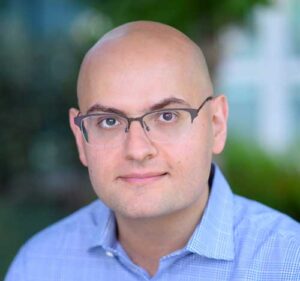
Acute Myeloid leukemia (AML) is the second most common leukemia in children, and the prognosis after relapse is poor. Unlike current CAR T treatment for the most common childhood leukemia, acute lymphoblastic leukemia (ALL), patients with AML experience significant toxicity with CAR T therapy. This is due, in part, to the CAR T’s target appearing on healthy cells and tumor cells, driving the therapy to attack both. Novel treatment approaches are in dire need as current AML CAR T-cells have failed to prolong survival for these very high-risk patients.
Dr. Moghimi and team at Children’s Hospital Los Angeles (CHLA) have developed next-generation AML CAR T-cells with improved precision and persistence that could be a promising tool for treating patients with relapsed/refractory AML. As a combination therapy, Dr. Moghimi’s approach avoids healthy cells and eliminates toxicity, increasing survival. This novel approach could be translated into the clinic for pediatric patients at CHLA.
“Supported by this generous funding from CureSearch,” Dr. Moghimi adds, “our project aims to develop an effective and safe next-generation CAR T strategy to treat children with AML by targeting a combination of two antigens, significantly increasing their accuracy and safety.”
